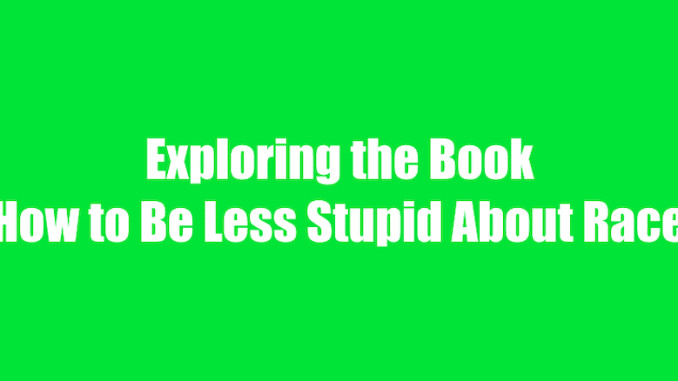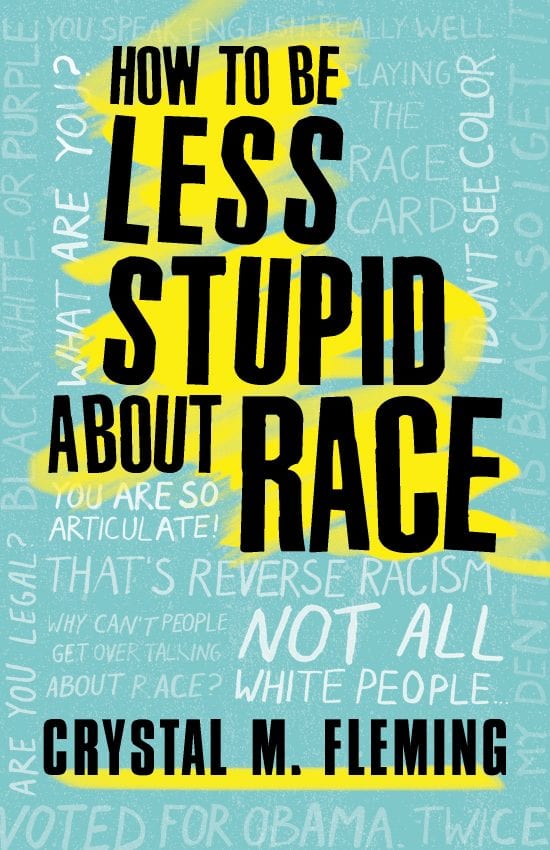
We explore the 2019 book about systemic racism, white supremacy, and how to be actively antiracist.
BY CHRIS RYAN
BARISTA MAGAZINE ONLINE
Following the murder of George Floyd and the subsequent reckoning with systemic racism occurring around the world, it’s the duty of those people who have traditionally been in power—i.e., white people—to educate themselves about the historical events leading to our current structure, and to work toward changing that structure by being actively antiracist. We’ve of course been supporting this movement at Barista Magazine Online, with many recent stories exploring antiracism, cafés’ efforts to support Black lives, and the work of Black coffee professionals. (Check out our recent archives for more stories.)
Embarking on that endeavor myself, I was sent this June list from Fast Company on suggested books for building an antiracist workplace, where I discovered How to Be Less Stupid About Race by Crystal M. Fleming, Ph.D. Published in 2019 by Beacon Hill Press, this book takes a sometimes playful approach—just look at the title—to the very serious topic of racism.

Fleming, a writer and sociologist who is an associate professor of sociology and Africana studies at Stony Brook University in New York, has experienced her own journey of discovering systemic racism in recent years. A Black woman who says she was given many opportunities to excel because of her academic excellence, Fleming describes herself as being unaware of the systems that oppress BIPOC folx until somewhat recently.
In the book, she seeks to save people from “racial stupidity,” which she defines as “nonsensical, illogical, ahistorical, or socially inaccurate claims about race and racism; the denial of racial oppression; racist beliefs such as the inherent and natural superiority of one race over others; and superficial descriptions of the racial order.” She explains how this outlook has become so pervasive, and looks at how racially stupid ideas are represented throughout our lives, from the classroom to media to politics and beyond.
These ideas are represented, Fleming writes, because of systemic racism, which she describes as “collective practices and representations that disadvantage categories of human beings on the basis of their perceived ‘race.’” And this systemic oppression can be broken through the work of antiracists, whom she calls “people of any racial or ethnic background who take a personal, active role in challenging systemic racism.”
The book blends historical information, Fleming’s sociological background and observations, and her playful style to present an approachable look at systemic racism and antiracist approaches. She covers a lot of interesting ground over 200+ pages, including detailing how she went from representing President Obama on French TV to disliking him (because she sees him as protecting the racial status quo); exploring her view that the United States’ support of President Trump is just a representation of the country’s historical white supremacy; and looking at how that white supremacy extends to media and its focus on the white perspective.
It may seem like a heavy read, but Fleming’s style makes this important information digestible. And importantly, she ends the book by offering tangible suggestions for steps we can all take to build a less racially stupid society. These include: “Start or join an antiracist study group and share what you learn about systemic racism”; “Empower young people to understand systemic racism”; and “Disrupt racist practices. Get comfortable calling shit out.” About the last one, she starts, “If you’re not making powerful white people uncomfortable, you’re doing antiracism wrong.”
Check out How to Be Less Stupid About Race here.

